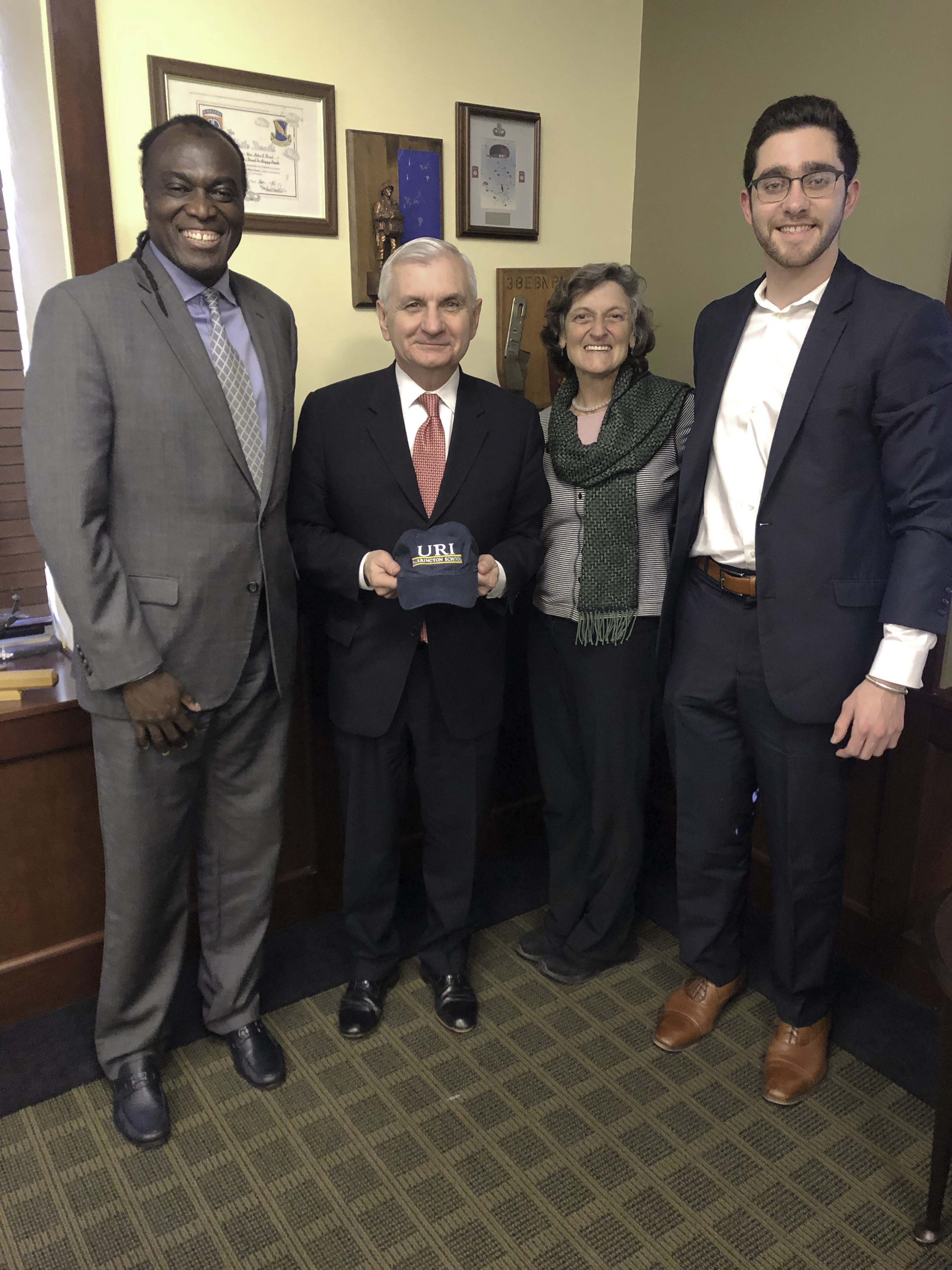(Left to right) Louis Fosu, U.S. Sen. Jack Reed, Ann Salzarulo-McGuigan, Chris Parisella. Reed was presented with a Harrington School of Communication and Media cap. Photo courtesy of Ann Salzarulo-McGuigan.
The University of Rhode Island’s chapter of Amnesty International USA, a group focused on humanitarian issues around the globe, recently met with U.S. Sen. Jack Reed of Rhode Island to talk U.S. immigration and the crisis in Yemen.
According to Chris Parisella, the co-president of URI’s Amnesty chapter, the national amnesty organization will reach out to the chapters across the country and express what they feel the pressing humanitarian issues are. From there, the national organization suggests the chapter goes to their local legislators.
That’s how they decided to focus on the U.S. border control issues and the crisis in Yemen in the meeting with Reed.
“From there, it really just launched into a conversation about those issues and what was going on,” said Parisella. “[We talked about] the Senate and the House, and what he could do [for those issues].”
Parisella said they talked about a bill in the Senate, in which Reed
In regards to the U.S. border crisis, Parisella said Reed was definitely in support of the immigrants at the border.
“He foresaw there to be hurdles for the Trump administration,” said Parisella. “[And] the need for ‘smart’ border protections, as opposed to this wall that’s been proposed.”
Parisella said that the chapter’s faculty advisor, Ann Salzarulo-McGuigan, was the one to set up the meeting. Salzarulo-McGuigan has been involved in advocacy for some time now. She was the co-president of the chapter at the graduate school she attended, the Middlebury Institute of International Studies. At her time in grad school and with the chapter there, she participated in vigils in the Monterey, California square, where they called on Nancy Pelosi in her early political career (1968-1984).
“Yes, my life’s work has been dedicated to advocacy for many years, as I am from an immigrant household, I have experienced first-hand discrimination,” said Salzarulo-McGuigan. “So, siding with those whose voice is not heard was, and is, my calling.”
Salzarulo-McGuigan said that Reed’s office responded immediately after she had reached out to them. She also said that Reed had invited a very knowledgeable aide with a specialization in immigration affairs, Wendy Del Carmen.
“Wendy and Senator Reed were very attentive to our concerns,” said Salzarulo-McGuigan.
Parisella said that, although the Amnesty chapter at URI is relatively new, they have a strong core base and really try hard to educate URI community about human rights and how effective grassroots activism can be.
“[At] the most basic level… anyone can affect change,” she said.
Currently, Parisella said they have about 12 members, but they’re still a young organization and they actively look to engage their community in these issues more.
“[We’re] always looking for new and enthusiastic members,” Parisella said. “We want to get involved more with Rhode Island issues too. When you think human rights, people tend to think internationally, but you know, civil rights are human rights and there’s a lot of great organizations at URI that work on those sorts of issues that we’d love to work with as well.”

